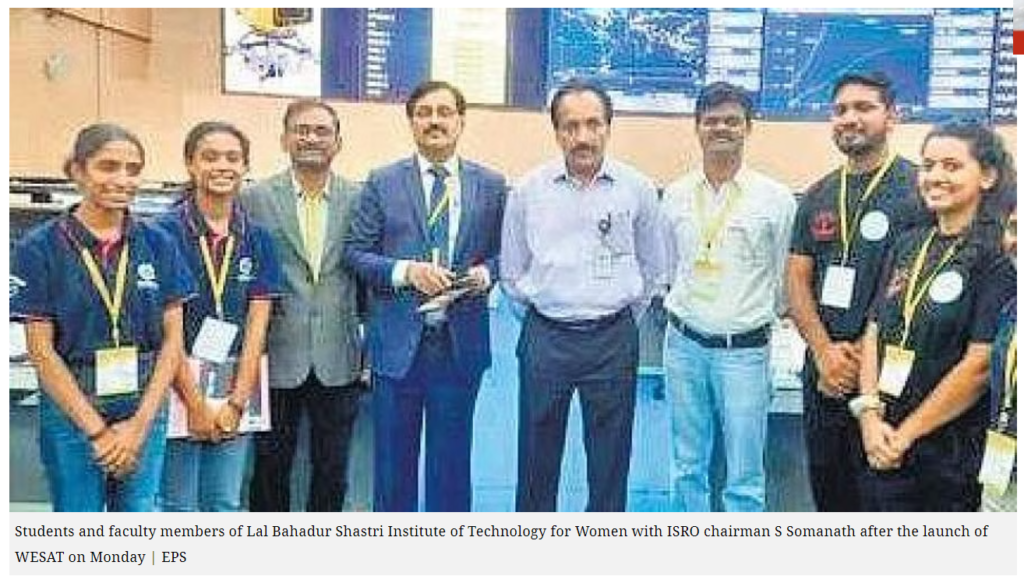Being the only self-powered payload in the PSLV C-58 mission, WESAT was capable of capturing data even before reaching its orbit located at an altitude of 350 km from the earth’s surface.

It was a proud moment for students and faculty of Lal Bahadur Shastri Institute of Technology for Women (LBSITW) when a small satellite developed by them was successfully placed in orbit as part of the PSLV C58 mission that was launched by ISRO on Monday.
The Women Engineered SATellite’ (WESAT), designed fully under the supervision of women, would measure the ultraviolet (UV) index of the sun and also study UV radiation effects on Earth, particularly over Kerala.
Being the only self-powered payload in the PSLV C-58 mission, WESAT was capable of capturing data even before reaching its orbit located at an altitude of 350 km from the earth’s surface.
“It was indeed a proud moment for us as our payload was the first to transmit data from the moment the heat shield got separated, at around three minutes after lift-off,” Principal Investigator of the WESAT project Dr Lizy Abraham told TNIE from Sriharkiotta where a 40-member team from LBSITW witnessed the launch.
The data from WESAT was received by ISRO Telemetry, Tracking and Command Network (ISTRAC), Bengaluru. Around 23 minutes after lift-off, the satellite was placed in orbit, said Lizy who is the coordinator of LBSITW’s Space Club which has around 150 student members who developed the satellite.
“The students were overjoyed when the ISRO chairman and the PSLV mission director referred to our small satellite as a symbol of women empowerment,” she said. It was a crowning moment for the student team whose hard work over the past five years made WESAT possible.
The satellite is equipped with UV sensors and solar intensity sensors, providing valuable data for climate change studies and health risk assessments. Higher Education Minister R Bindu hailed the WESAT launch as a milestone in the country’s space exploration history.
Bindu had presented `31 lakh as funding grant, sanctioned under the Central government scheme NIDHI PRAYAS and corporate social responsibility funds, for the development WESAT.
Article Credit: newindianexpress